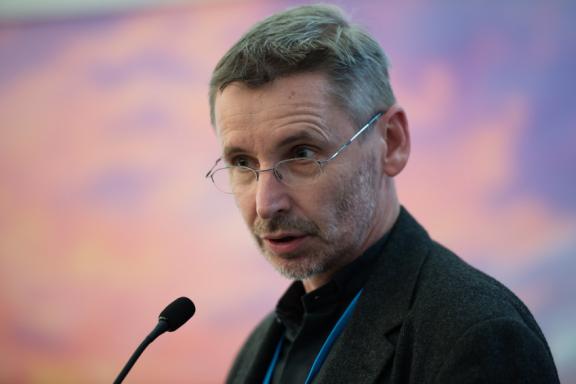Bible text:
You shall worship the Lord your God, and I will bless your bread and your water; and I will take sickness away from among you. (Exodus 23:25)
Reflection
Climate change has become an issue of everyday concern. Related to global warming, it is too often reduced to a one-dimensional threat linked to the mounting temperature. The slogan of keeping global warming below 1.5 has become the driving motto of the efforts behind keeping climate change within a manageable frame.
The most visible impact of climate change related to water, especially for those living inside the continent and far from islands threatened by rising water levels in oceans, is drought and water scarcity. Indeed, rising temperatures cause the evaporation of water, which further leads to a shortage of water and an increase of drought.
Europe is a water-rich continent and climate change opens a new perspective on it. In 2018 and 2019, Europe saw two exceptional and consecutive summer droughts – a combination of events that scientists called “unprecedented in the last 250 years.” During the 2018 drought, some parts of central Europe received less than half of their usual rainfall. Putting aside this extraordinary moment, or Europe being a water-rich continent, about 20% of the territory and 30% of Europe's population are affected by water stress in an average year. Droughts and water scarcity are no longer rare or extreme events in Europe. And in this water-rich continent, over 16 million people still lack access to basic drinking water.
Access to water is certainly not only about climate change. Climate change, however, makes this problem worse for, as the climate warms, increasingly severe and frequent droughts are expected. The most recent IPCC report reveals that climate change has now already caused substantial damage and an acceleration of irreversible losses in terrestrial freshwater, and that the extent and magnitude of climate change impacts are larger than ever before estimated.
However, the question of the relationship between water and climate change goes beyond that. The keyword in this respect is vulnerability. Sudden floods in the most unexpected places, storms and torrential rains in previously unforeseen areas, loss of lives and enormous material damage - these are also resulting in an increasing number of cases of atmospheric instabilities caused by climate change.
Climate change is here, is human-induced, and we must face it. It cannot be avoided. The main features of climate change, according to the last report of IPCC, are now firmly established in the unpredictability of the climate system and exposed vulnerability of human beings, especially when witnessing the impact of climate change in new regions and on activities that were formerly seen as a guarantee to the provision of basic needs and a certain standard of life, for example agriculture. Antonio Guterres, secretary general of the UN, uses fitting words in his review of the IPCC report when he describes it as "an atlas of human suffering and a damning indictment of failed climate leadership.”
What can we do when facing these facts? Science issues warnings, politics makes efforts to formulate new rules. What should be added from the perspective of Christian faith? Faith describes the world as a gift given to humanity blessed by God. However, the benefit of this blessing depends on our relationship with God. In forgetting that the world is a gift that needs to be taken care of, in forgetting our task to protect and to cultivate it, and in taking creation primarily as a resource of our wealth and prosperity without considering the repercussions, wealth can quickly become of little significance or benefit.
In our efforts to address ecological challenges we may call for justice – rightly so. However, at the same time we must not to lose sight of human fragility and the unnecessary suffering and pain caused by climate change. We have to take into account that they are a direct cause of disrespecting the limits of the world in which we live and are rooted in the failure of our relationship with God.
Questions:
- Can you see water beyond its necessary use in everyday life in terms of hygiene, drinking and as part of the food chain? Can we consider it as a blessing?
- How is water disclosing the fragility and vulnerability of human life?
Action:
- Think of your water consumption
- Get engaged into Season of Creation 2022 on the theme: Listen to the voice of creation
Resources:
- European Environmental Agency: Water resources across Europe – confronting water stress: an updated assessment; https://www.eea.europa.eu/publications/water-resources-across-europe-confronting
- The 6th IPCC report: Climate change 2022 – Impact, Adaptation and Vulnerability. Summary for policymakers; https://report.ipcc.ch/ar6wg2/pdf/IPCC_AR6_WGII_SummaryForPolicymakers.pdf
* Rev. Dr Peter Pavlovic is the study secretary of the Conference of European Churches. His ongoing work includes ecumenical cooperation, churches’ engagement in society and in the dialogue with the European political institutions, as well as concerns of Christian social ethics in dialogue with science, ethics and politics. He focusses on theological and ethical reflections of concerns related to faith and economy, ecology and sustainable development.





